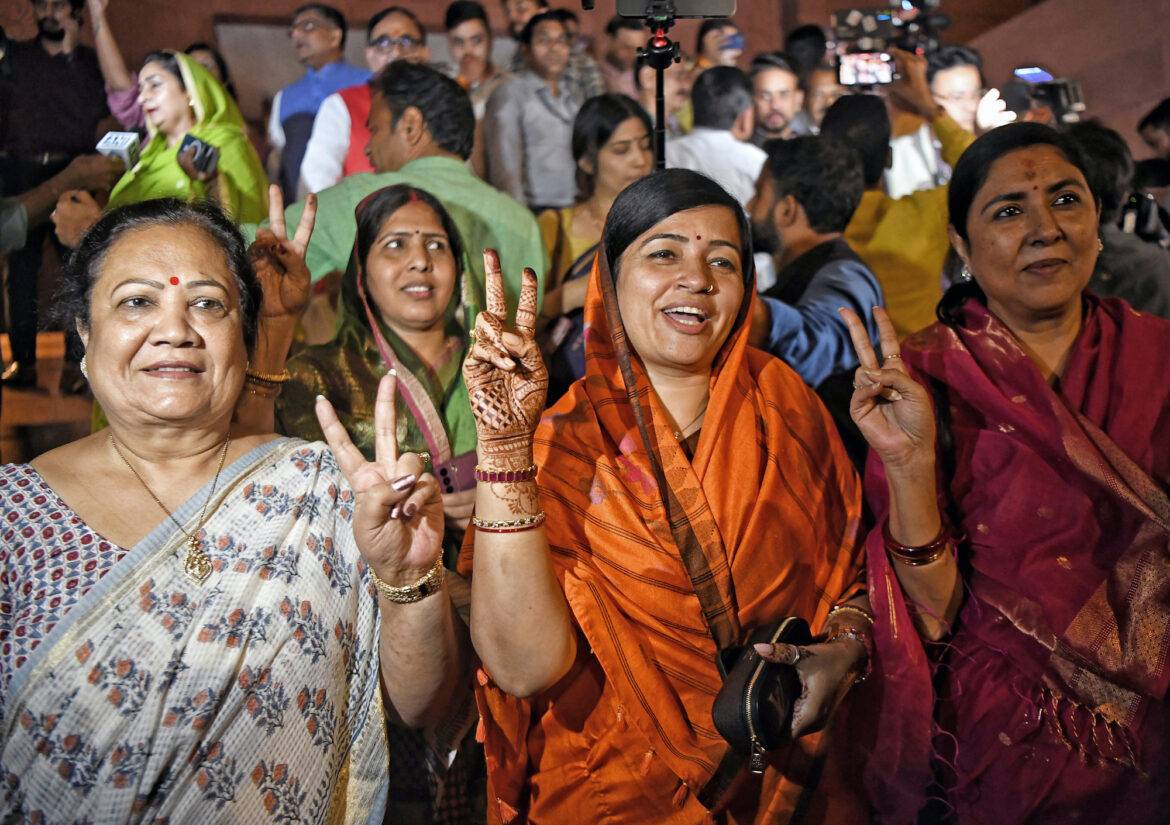AI Generated Summary
- The ‘Nari Shakti Vandan Adhiniyam’ Bill carries significant weight, especially considering that it is the first piece of legislation to be passed in the Lok Sabha since its relocation to the new Parliament building.
- The bill was passed by a majority of the total membership of the House and by a majority of not less than two-thirds of House members present and voting.
- The ‘Nari Shakti Vandan Adhiniyam’ Bill stands as a testament to India’s commitment to gender equality and the empowerment of women in the 21st century.
In a momentous development for gender equality and women’s empowerment in India, the Lok Sabha, the lower house of Parliament, unanimously passed The Constitution (One Hundred and Twenty-Eighth Amendment) Bill, 2023. This groundbreaking legislation, popularly referred to as the ‘Nari Shakti Vandan Adhiniyam’ Bill, received resounding support from members of all political parties during a day-long debate.
Prime Minister Narendra Modi expressed his delight at the historic achievement, emphasizing the significant impact it will have on women’s participation in the country’s political process. In a tweet, he thanked MPs from across party lines for their overwhelming support, stating that this legislation would further boost women’s empowerment.
The Women’s Reservation Bill, included in The Constitution (One Hundred and Twenty-Eighth Amendment) Bill, 2023, paves the way for a transformative change in Indian politics. The most remarkable aspect of the bill is its provision for a 33% reservation for women in both the Lok Sabha and state legislatures. This reservation will not only empower women but also contribute to a more inclusive and representative democracy.
Union Law Minister Arjun Ram Meghwal played a pivotal role in explaining the nuances of the bill to the Lok Sabha members. His efforts were instrumental in gaining consensus, and after the thorough deliberation, the bill was approved. During the division, an astounding 454 members supported the legislation, with only two voting against it. Opposition-proposed amendments were rejected, reaffirming the strong backing for the bill’s various clauses. Speaker Om Birla officially announced the successful passage of the historic legislation.
The ‘Nari Shakti Vandan Adhiniyam’ Bill carries significant weight, especially considering that it is the first piece of legislation to be passed in the Lok Sabha since its relocation to the new Parliament building. The bill was passed by a majority of the total membership of the House and by a majority of not less than two-thirds of House members present and voting. The division was conducted meticulously through the distribution of slips, ensuring a transparent and democratic process.
Union Law Minister Arjun Ram Meghwal dismissed criticism from the Opposition regarding implementation delays, emphasizing that the bill guarantees transparency. The day-long debate, led by Congress leader Sonia Gandhi, showcased the commitment of Parliament to women’s rights and gender equality.
The journey for this historic bill does not end with its passage in the Lok Sabha. It is now set to be debated in the Rajya Sabha, the upper house of Parliament, on the following day. This represents a crucial step towards its eventual implementation.
Notably, the Rajya Sabha had previously passed the Women’s Reservation Bill during the Congress-led UPA government in 2010. However, it remained unaddressed in the Lok Sabha, ultimately resulting in the bill’s stagnation and eventual demise.
The introduction of The Constitution (One Hundred and Twenty-Eighth Amendment) Bill, 2023 by the government, with Prime Minister Narendra Modi’s resolute commitment to women’s empowerment, underscores the significance of this legislation. As it progresses through the legislative process, India moves one step closer to achieving a more equitable and inclusive political landscape, where the voices and contributions of women are recognized and valued. The ‘Nari Shakti Vandan Adhiniyam’ Bill stands as a testament to India’s commitment to gender equality and the empowerment of women in the 21st century.




